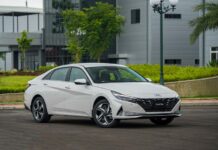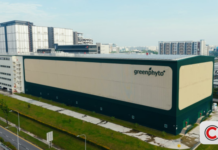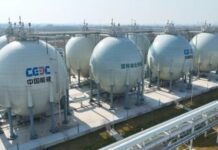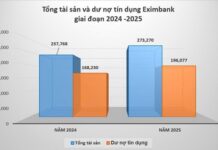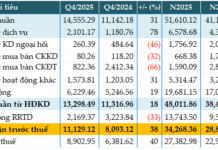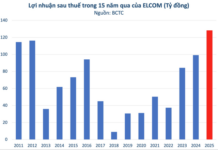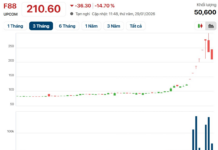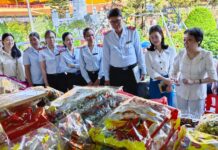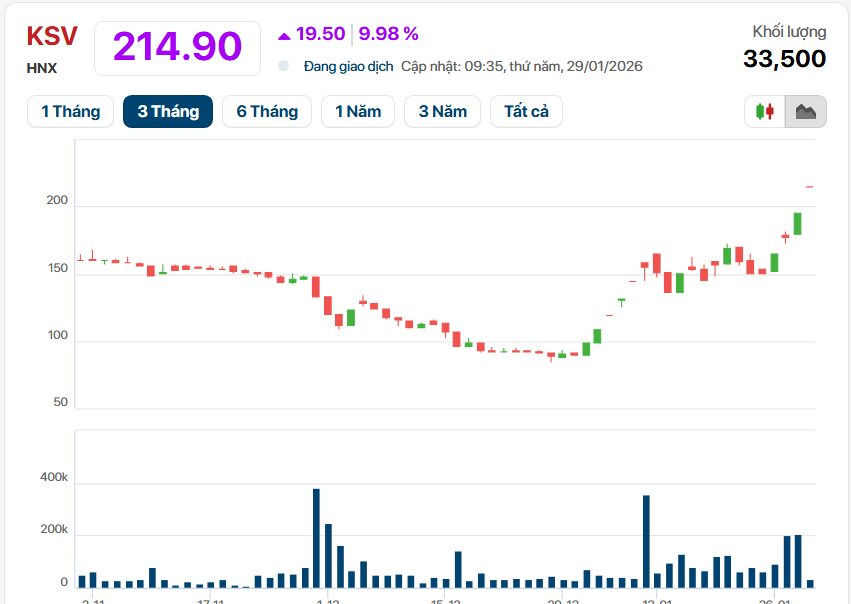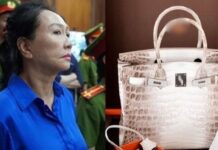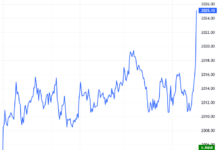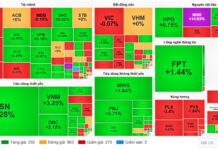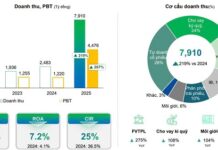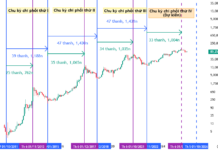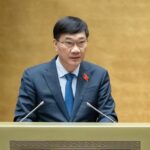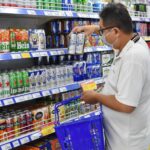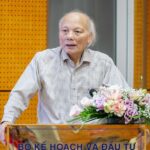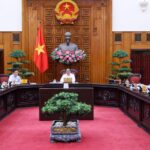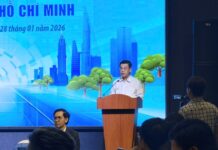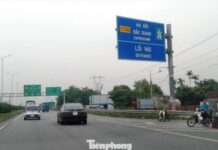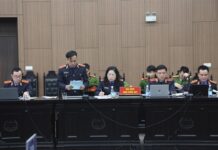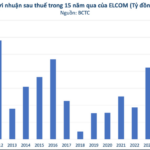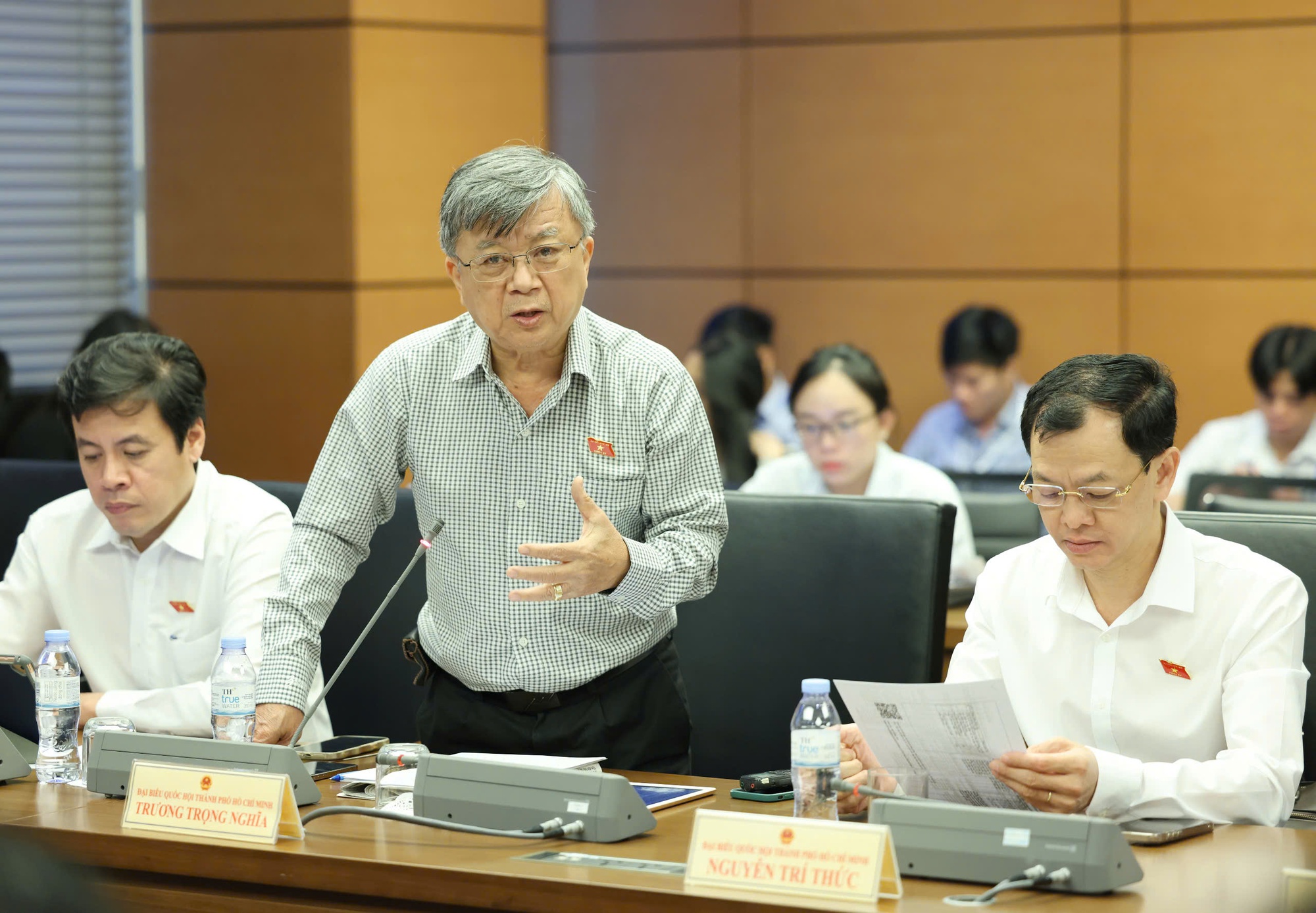
Delegate Truong Trong Nghia speaks at the group discussion on November 22. Photo: Van Phuc
In case organizations or individuals produce or import separate parts, either the condenser or the evaporator, the goods sold or imported (condenser or evaporator) are still subject to special consumption tax as complete products (complete air conditioners) to legalize the stable regulation for a long time. The tax rate applied to air conditioners is 10%.
The imposition of a special consumption tax on air conditioners has received great attention from National Assembly deputies during their group discussions on the same morning. Delegate Truong Trong Nghia (Ho Chi Minh City delegation) questioned whether air conditioners are currently considered luxury items.
According to Delegate Nghia, many families now use air conditioners, and taxing this item means “pushing back the lifestyle of Vietnamese people by 40-50 years.”
“Many people live in rented rooms, and when it’s hot, they install air conditioners for their families and children,” he said. “Moreover, they don’t always use air conditioning; it depends on the timing, so including it in the category of items subject to special consumption tax is unreasonable.”
The deputy of Ho Chi Minh City also pointed out that the special consumption tax is an indirect tax levied on certain types of goods and services considered luxurious to regulate their production, import, and social consumption. It also significantly adjusts the income of consumers.
“With a tropical climate like Vietnam’s, I don’t understand the rationale for including air conditioners in the category of items subject to special consumption tax,” he said. “I propose that the drafting body reconsider and exclude this item from the taxable category.”
Meanwhile, Delegate Nguyen Minh Hoang, Chairman of the Ho Chi Minh City Association of Former Prisoners of War, suggested that with the current socio-economic development, many families can afford air conditioners. Additionally, using air conditioning is a way to improve and enhance the quality of life. Therefore, he proposed excluding air conditioners from the list of items subject to special consumption tax.
Delegate Nguyen Quang Huan (Binh Duong province) acknowledged that using air conditioners contributes to environmental pollution. Still, as people’s living standards improve, air conditioning becomes an essential need.
“Can we endure the summer heat, especially in the city, without air conditioning?” he asked. “As the demand for air conditioning increases, should it be subject to special consumption tax?”
Regarding the draft law, Mr. Le Quang Manh, Chairman of the National Assembly’s Finance and Budget Committee, said that some opinions suggested reconsidering the imposition of a special consumption tax on air conditioners because their use has become prevalent and they are no longer considered luxury items as before.
Therefore, if the special consumption tax is still levied on air conditioners, it should only be applied to those using refrigerants containing HCFC (a compound containing carbon, hydrogen, chlor, and flour) to encourage the use of environmentally friendly technology or classify them according to design capacity and exclude popular types that meet the essential needs of the people from taxation.
A Sugary Proposal: The Taxing Question of Sweet Drinks
The proposed Special Consumption Tax Law (amended) will be presented to the National Assembly for opinions at the 8th Session, taking place in November 2024. One of the novel points of this draft law is the proposed tax on sugary drinks. However, as this is the first time that a special consumption tax on sugary drinks has been proposed in such a law, it has sparked much debate and controversy.
Streamlining Urban Subdivision Planning: Expediting the Process
The draft Law on Urban and Rural Planning has been revised with a new provision that reduces the maximum time for completing the formulation and approval of detailed urban planning schemes, from 12 months to 6 months, after the approval of the general urban plan.
Unlocking Opportunities: Empowering Citizens’ Investment and Business Ventures through Legal Reform
On the afternoon of September 11, Prime Minister Pham Minh Chinh chaired a meeting of the Government’s Standing Committee on a range of key issues. Deputy Prime Minister Ho Duc Phoc and leaders from various ministries and central agencies also attended the meeting.

